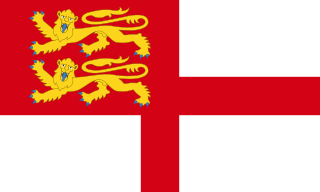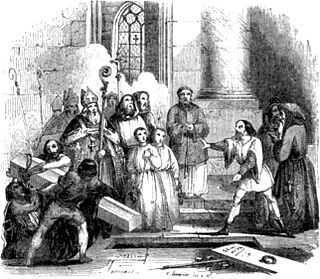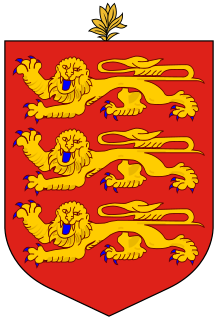
United States appellate procedure involves the rules and regulations for filing appeals in state courts and federal courts. The nature of an appeal can vary greatly depending on the type of case and the rules of the court in the jurisdiction where the case was prosecuted. There are many types of standard of review for appeals, such as de novo and abuse of discretion. However, most appeals begin when a party files a petition for review to a higher court for the purpose of overturning the lower court's decision.

An injunction is a legal and equitable remedy in the form of a special court order that compels a party to do or refrain from specific acts. "When a court employs the extraordinary remedy of injunction, it directs the conduct of a party, and does so with the backing of its full coercive powers." A party that fails to comply with an injunction faces criminal or civil penalties, including possible monetary sanctions and even imprisonment. They can also be charged with contempt of court. Counterinjunctions are injunctions that stop or reverse the enforcement of another injunction.
Equity is a particular body of law that was developed in the English Court of Chancery. It is not a synonym for 'general fairness' or 'natural justice'. It exists in domestic law, both in civil law and in common law systems, and in international law. The tradition of equity begins in antiquity with the writings of Aristotle (epieikeia) and with Roman law (aequitas). Later, in civil law systems, equity was integrated in the legal rules, while in common law systems it became an independent body of law.

Sark is a part of the Channel Islands in the southwestern English Channel, off the coast of Normandy, France. It is a royal fief, which forms part of the Bailiwick of Guernsey, with its own set of laws based on Norman law and its own parliament. It has a population of about 500. Sark has an area of 2.10 square miles (5.44 km2). Little Sark is a peninsula joined by a natural but high and very narrow isthmus to the rest of Sark.
In law, a judgment, also spelled judgement, is a decision of a court regarding the rights and liabilities of parties in a legal action or proceeding. Judgments also generally provide the court's explanation of why it has chosen to make a particular court order.

A bailiff is a manager, overseer or custodian; a legal officer to whom some degree of authority or jurisdiction is given. Bailiffs are of various kinds and their offices and duties vary greatly.
The Crown is the state in all its aspects within the jurisprudence of the Commonwealth realms and their subdivisions. Legally ill-defined, the term has different meanings depending on context. It is used to designate the monarch in either a personal capacity, as Head of the Commonwealth, or as the king or queen of his or her realms. It can also refer to the rule of law; however, in common parlance 'The Crown' refers to the functions of government and the civil service.

The Bailiwick of Guernsey is one of three Crown Dependencies.
Small-claims courts have limited jurisdiction to hear civil cases between private litigants. Courts authorized to try small claims may also have other judicial functions, and go by different names in different jurisdictions. For example, it may be known as a county or magistrate's court. These courts can be found in Australia, Brazil, Canada, England and Wales, Hong Kong, Ireland, Israel, New Zealand, Philippines, Scotland, Singapore, South Africa and the United States.

The clameur de haro is an ancient legal injunction of restraint employed by a person who believes they are being wronged by another at that moment. It survives as a fully enforceable law to this day in the legal systems of Jersey and Guernsey, and is used, albeit infrequently, for matters affecting land.
The legislative, executive, and judicial branches, of both the United States federal government and the State of Florida, were involved in the case of Terri Schiavo. In November 1998 Michael Schiavo, husband of Terri Schiavo, first sought permission to remove his wife's feeding tube. Schiavo had suffered brain damage in February 1990, and in February 2000 had been ruled by a Florida circuit court to be in a persistent vegetative state. Her feeding tube was removed first on April 26, 2001, but was reinserted two days later on an appeal by her parents, Bob and Mary Schindler.
DeFunis v. Odegaard, 416 U.S. 312 (1974), was a United States Supreme Court case in which the Court held that the case had become moot and so declined to render a decision on the merits. American student Marco DeFunis, who had been denied admission to the University of Washington School of Law in the state of Washington before he was provisionally admitted during the pendency of the case, was slated to graduate within a few months of the decision being rendered.

The Jersey Eastern Railway was a standard gauge railway that began operations on 6 August 1873 in Jersey. The line closed on 21 June 1929. It is not to be confused with the Jersey Railway.
The law of Jersey has been influenced by several different legal traditions, in particular Norman customary law, English common law and modern French civil law. The Bailiwick of Jersey is a separate jurisdiction from that of the United Kingdom, and is also distinct from that of the other Channel Islands such as Guernsey, although they do share some historical developments. Jersey's legal system is 'mixed' or 'pluralistic', and sources of law are in French and English languages, although since the 1950s the main working language of the legal system is English.

The Courts of Jersey are responsible for the administration of justice in the Bailiwick of Jersey, one of the Channel Islands. They apply the law of the Island, which is a mixture of customary law and legislation passed by the legislature, the States Assembly.
Google has been involved in multiple lawsuits over issues such as privacy, advertising, intellectual property and various Google services such as Google Books and YouTube. The company's legal department expanded from one to nearly 100 lawyers in the first five years of business, and by 2014 had grown to around 400 lawyers. Google's Chief Legal Officer is Senior Vice President of Corporate Development David Drummond.

The Courts of Guernsey are responsible for the administration of justice in the Bailiwick of Guernsey, one of the Channel Islands. They apply the law of the Island, which is a mixture of customary law dating back as far as the 10th century and legislation passed by the legislature, the States of Deliberation.

The Law of Guernsey originates in Norman Customary Law, overlaid with principles taken from English common law and Equity, as well as from statute law enacted by the competent legislature(s) -- usually, but not always, the States of Guernsey

PJS v News Group Newspapers Ltd [2016] UKSC 26 is a UK constitutional law case in which an anonymised privacy injunction was obtained by a claimant, identified in court documents as "PJS", in order to prohibit publication of the details of a sexual encounter between him and two other people. Media outside England and Wales identified PJS as David Furnish.










